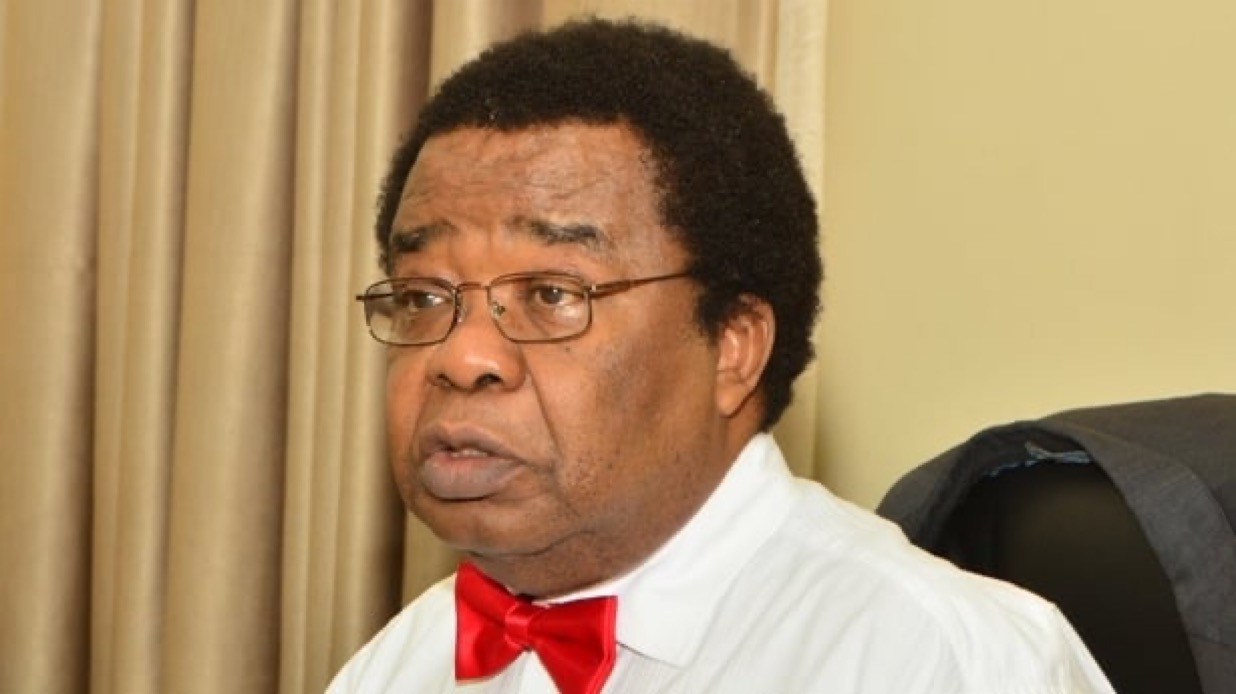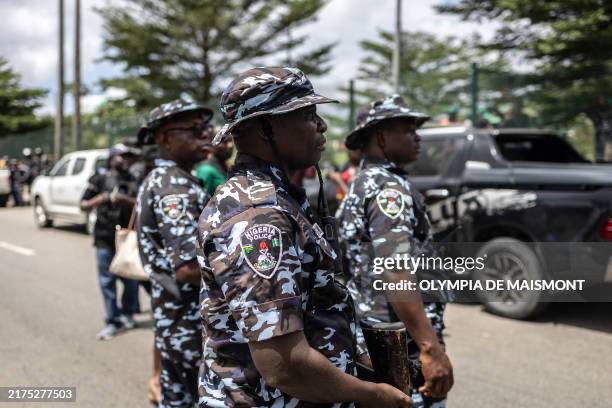
Christian Genocide Claim Unjustified, Could Trigger Travel Restrictions Against Nigerians — Bolaji Akinyemi Warns

Former Minister of External Affairs, Professor Bolaji Akinyemi, has issued a stern warning over the growing international narrative suggesting that a “Christian genocide” is occurring in Nigeria, describing the claim as dangerous, misleading, and capable of attracting severe diplomatic consequences for the country. Akinyemi, a renowned diplomat and foreign policy expert, expressed grave concern that such accusations, if left unchecked, could paint Nigeria in a negative light globally and result in far-reaching sanctions or travel restrictions against its citizens.
Speaking during an interview in Lagos, the former minister noted that while Nigeria faces undeniable security and religious tensions, labeling the situation as a “Christian genocide” is both inaccurate and inflammatory. He argued that such language not only misrepresents the complexities of Nigeria’s internal conflicts but also risks reinforcing dangerous stereotypes that could isolate the country in international relations. According to him, the claim is being amplified by foreign interest groups, religious lobbyists, and international media outlets seeking to influence Western governments against Nigeria.
Professor Akinyemi explained that global powers, particularly in the West, take allegations of religious persecution very seriously, and once a nation is branded as a violator of religious freedom, the repercussions can be severe. He cited examples of countries that have faced travel bans, economic sanctions, and diplomatic isolation as a result of such reports. “If Nigeria is officially perceived as a country where one religion is systematically persecuted, it could trigger serious actions — from travel restrictions on government officials to sanctions on institutions,” he cautioned.
He went on to warn that the misuse of the term “genocide” could undermine Nigeria’s credibility on the international stage, noting that genocide is not a term to be used loosely. It carries grave implications under international law, as it refers to a deliberate and systematic attempt to exterminate a group of people based on ethnicity, religion, or nationality. “There is no evidence that the Nigerian state is engaging in or supporting such actions. We must be careful not to hand ammunition to those who wish to label our country negatively,” he said.
Akinyemi further emphasized that while Christian communities in parts of the North have indeed suffered tragic attacks from terrorists and bandits, the violence has also affected Muslims and people of other beliefs. He stated that the ongoing insecurity is primarily driven by terrorism, banditry, and criminality rather than religious persecution. “When we examine the data, it is clear that victims of these attacks cut across religions. Muslims have also suffered kidnappings, killings, and displacement. It is therefore wrong to frame the conflict purely as one religion targeting another,” he noted.
The respected diplomat also called on religious leaders and organizations within Nigeria to be more responsible with their public statements, urging them to avoid narratives that could deepen division or invite foreign interference. According to him, Nigeria’s delicate multi-religious fabric requires careful handling, and any attempt to internationalize local conflicts could backfire. “We must remember that once you invite the international community into your internal issues through emotional or exaggerated claims, you lose control of the narrative. Foreign governments will act on what they perceive, not necessarily on the full context,” Akinyemi warned.
He advised that instead of framing the issue as a religious war, Nigerians should push for stronger security measures, more intelligence coordination, and inclusive governance that addresses the grievances of all affected communities. “Our focus should be on building national unity, addressing poverty, and reforming our security apparatus — not on labeling ourselves in ways that could damage our international standing,” he said.
Akinyemi also took aim at some Nigerian activists abroad who have been lobbying Western governments and religious bodies with reports portraying Nigeria as a country at war with Christians. He described such actions as dangerous and unpatriotic, stressing that they could provoke policies that harm ordinary Nigerians. “When the U.S. or European Union begins to see Nigeria as a hotspot of religious persecution, they will not distinguish between the guilty and the innocent. They will impose blanket measures that affect everyone, including those who never supported the false narrative,” he warned.
The former minister also expressed concern that some of these campaigns are being sponsored by groups seeking to destabilize Nigeria or manipulate international aid. He urged the Federal Government to engage in proactive diplomacy by correcting these misperceptions through embassies, international organizations, and the global media. “Nigeria must tell its story clearly and forcefully. Silence in the face of false allegations can be misinterpreted as admission. Our embassies and foreign missions must engage constantly with policymakers abroad to provide accurate information,” he urged.
He further recommended that the government partner with reputable international organizations and think tanks to present factual reports on the nature of violence in Nigeria. By doing so, he said, the country can show that its challenges are complex but not rooted in state-sponsored religious persecution. “When you provide transparent data and credible narratives, the world begins to see that what is happening in Nigeria is terrorism, not genocide,” he said.
Akinyemi’s warning comes at a time when some global advocacy groups and Western lawmakers have renewed calls for the United States to reinstate Nigeria on its list of “Countries of Particular Concern” over alleged violations of religious freedom. Nigeria was removed from the list in 2021, but reports from some human rights organizations continue to allege systematic attacks on Christians, especially in the Middle Belt and northern regions.
The issue has become a recurring point of tension between Nigeria and certain Western nations. Some Nigerian religious leaders have also accused the government of not doing enough to protect Christian communities, while others insist the crisis is being politicized. The debate has spilled into international media, with competing narratives shaping foreign perception of the country.
However, Akinyemi believes that such narratives could easily spiral into dangerous territory. He pointed out that Nigeria’s large diaspora population could face discrimination if global institutions begin to treat Nigerians as coming from a country accused of genocide. “Travel restrictions don’t only affect politicians; they affect students, businesspeople, and families abroad. The economic consequences could be devastating,” he said.
The former minister concluded by calling for unity and caution in how Nigerians discuss their challenges, both locally and internationally. “We must never give the world the impression that Nigeria is a nation of killers or persecutors. We have problems, yes, but we must solve them as one people. When we divide ourselves and carry those divisions abroad, we invite punishment from the world,” he said.
His remarks have since sparked conversations across political and religious circles, with many agreeing that while Nigeria’s insecurity crisis demands urgent attention, exaggerated narratives could indeed damage the country’s image. Akinyemi’s warning serves as a sobering reminder that in a globalized world where perception often shapes policy, words carry immense power — and misused, they can harm an entire nation.

